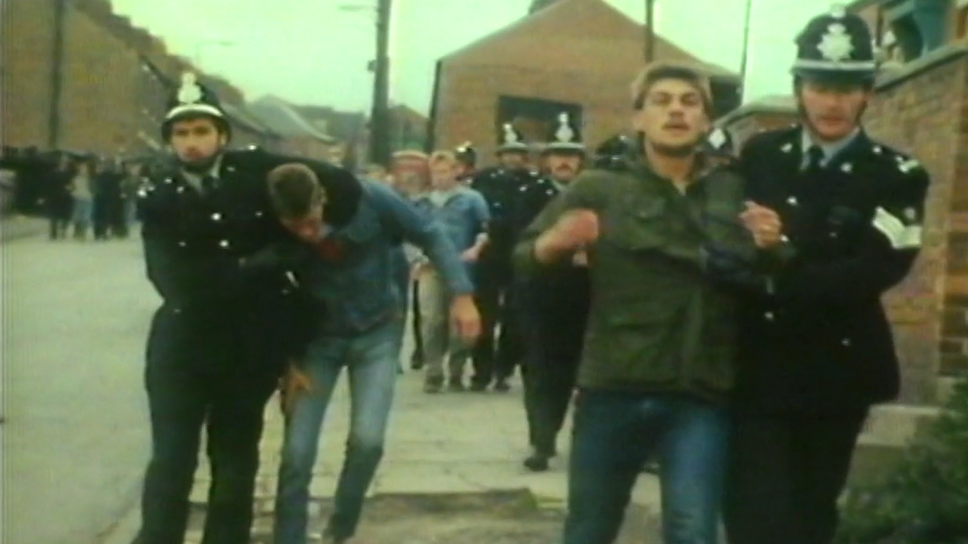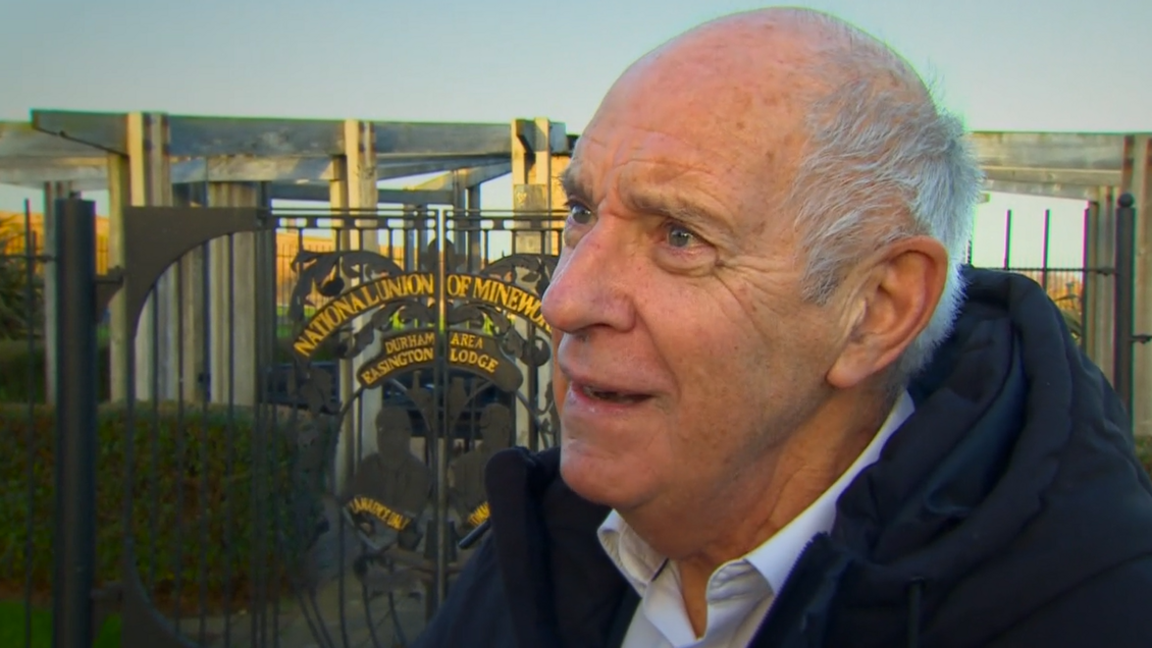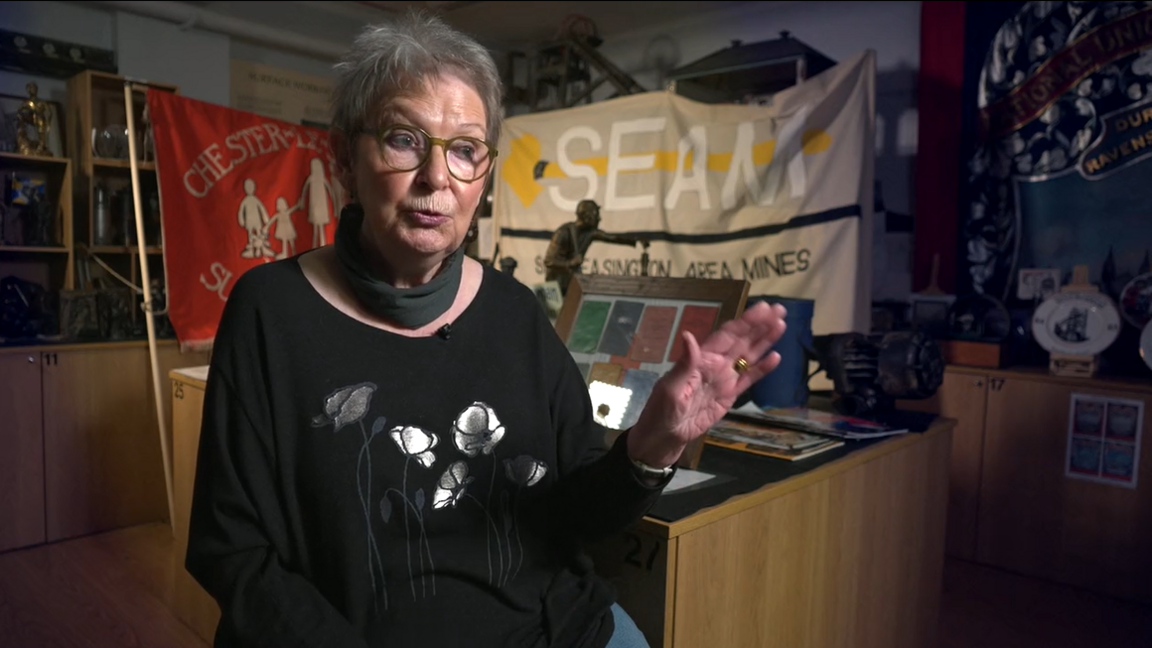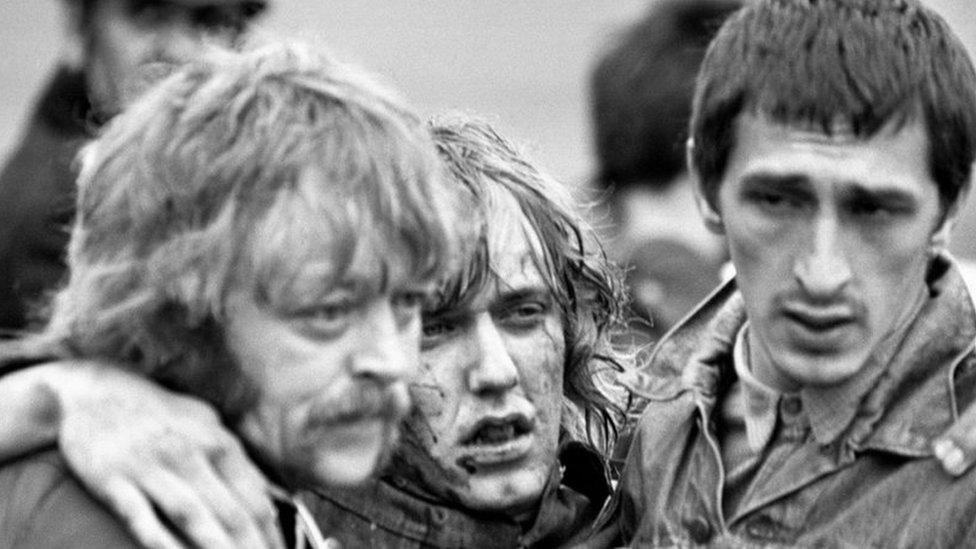Village 'under siege' during miners' strike

Easington Colliery was one of the most militant during the strike
- Published
The miners' strike of 1984-85 still casts a long shadow in a village which saw some of the most militant workers picket. Days of trouble in Easington, County Durham, started when pickets found out a single strike breaker, Paul Wilkinson, had been smuggled into work through a back entrance.
The picketers felt duped, and with a strike breaker now in the colliery, they went on the rampage and broke in.
Bricks and lumps of metal were thrown through office windows at Easington Colliery.
The coal board, at the time, said it was a "miracle" no-one was hurt inside.

David Ord was on the picket in Easington
David Ord, a striking miner, admitted he was involved in smashing up the colliery.
"I turned a car over with other lads," he said, adding: "I got arrested two days later."
Mr Ord said: "We just wanted revenge for the devious way they would sneak them in the back door.
"Orgreave was violent, but I think Easington was just as violent when it went up."

Picketer Alan Cummings described it as "the might of the state" against one pit village
Former miners have described the violence that ensued between police officers and picketers.
Easington saw police from various parts of the UK, including Wales and the Midlands, surrounding the colliery and the striking miners, using video cameras to record people's faces.
Alan Cummings, a striking miner, said: "They were fighting for their jobs and their livelihoods and you'd get police beating...people."
Another striking miner, John Wood, said: "I still live the strike all the time.
"Division is still there. Until there's not one miner left alive, it will always still be there."
'Under siege'
Residents in Easington said it felt like the village was under siege.
Heather Wood, who lived in Easington in 1984, said: "Our village green - you couldn't see it. It was black because it was full of police in uniform.
"I went to go down from the village to the colliery, the place where you've lived all your life, and the police are there with a cordon.
"'Where are you going? How long are you going to be? Who are you seeing?'"

Heather Wood lived in Easington during the strikes in 1984
The National Union of Mineworkers held a special conference on 3 March 1985, where coalfield delegates narrowly voted to end the strike. Miners returned to work on 5 March.
Easington Colliery eventually closed on 7 May 1993, with hundreds of jobs lost.
Forty years on from the miners' strike, the pit site has since become a park, but the legacy lingers.
Follow BBC North East on X (formerly Twitter), external, Facebook, external and Instagram, external. Send your story ideas to northeastandcumbria@bbc.co.uk
Related topics
- Published2 March 2024

- Published4 March 2024
- Published1 March 2024
